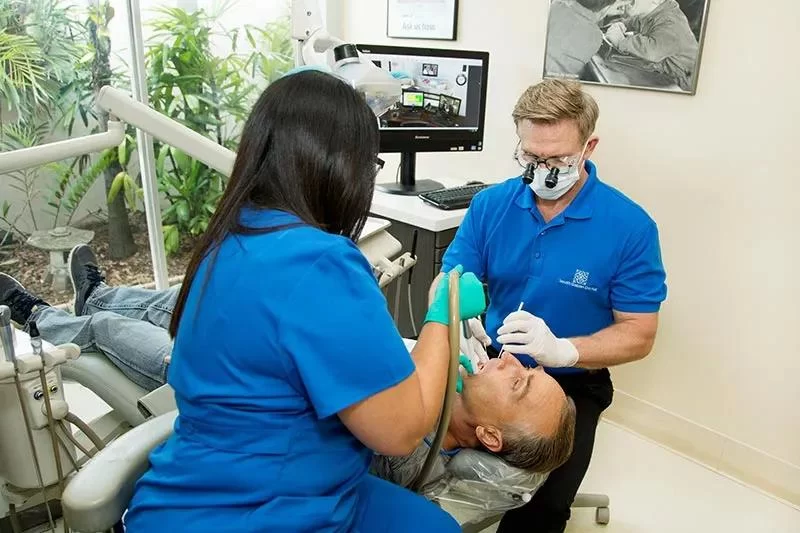
Is a Dentist a Doctor? Understanding the Difference Between Dentists and Doctors
When I first started considering a career in dentistry, one question kept coming up: "Is a dentist a doctor?" As someone who has always been curious about healthcare professions, I was eager to learn more about the roles and distinctions between dentists and doctors. It's a question that many people ask, and it's worth exploring in detail. Are dentists considered medical doctors? What makes a dentist different from a general physician? Let’s dive into what I found out about this topic, which might clear up any confusion you have regarding dentists and their qualifications.
1. What Does it Mean to Be a Doctor?
Before addressing whether a dentist is a doctor, I had to understand the basic definition of what it means to be a doctor. In the medical field, the term "doctor" refers to someone who has earned a doctoral degree in their respective field of expertise. This includes not just medical doctors, but also other professionals who hold doctoral degrees, such as psychologists, veterinarians, and of course, dentists.
Doctors, in the traditional sense, are usually medical doctors (MDs) or doctors of osteopathic medicine (DOs). They complete extensive training in medical school and typically specialize in treating a broad range of health issues, from physical ailments to preventive care. In the case of MDs and DOs, their training is primarily focused on diagnosing and treating diseases and injuries in the human body.
2. Dentists: Doctors of Dental Medicine
Now, let's look at the role of a dentist. Dentists do indeed have the title of "doctor." However, the type of doctoral degree they hold is different from that of an MD or DO. Dentists earn a Doctor of Dental Surgery (DDS) or Doctor of Dental Medicine (DMD) degree, both of which are considered professional doctoral degrees. This means that dentists are, in fact, doctors within the context of their specialized field, just as MDs are in the medical field.
For instance, I learned that dentists undergo extensive training that typically lasts around 8 years, similar to the length of time medical doctors spend in school. After completing a bachelor’s degree (typically in a science-related field), prospective dentists must attend dental school for an additional four years. The first two years of dental school are similar to those of medical school, involving courses in anatomy, biochemistry, and physiology. The latter two years are focused on clinical training, where students begin to work with real patients under supervision, learning everything from performing cleanings to performing complex dental surgeries.
3. The Role of a Dentist Compared to a Doctor
While dentists are indeed doctors, the scope of their practice is quite different from that of a medical doctor. Dentists specialize in oral health, focusing on the teeth, gums, and mouth. They are trained to diagnose and treat a variety of dental conditions, such as cavities, gum disease, tooth infections, and other oral health issues. Additionally, dentists provide preventive care, such as teeth cleanings, as well as corrective care, including fillings, crowns, and root canals.
On the other hand, medical doctors (MDs or DOs) are generalists who are trained to handle a broad range of health issues affecting the entire body. They are involved in diagnosing illnesses, prescribing treatments, and performing surgeries related to internal and systemic health. While they may occasionally treat oral health issues (such as oral infections related to systemic conditions), they are not trained to provide specialized dental care.
4. Are Dentists Considered Medical Doctors?
The confusion between dentists and medical doctors often arises because dentists are also referred to as "doctors." However, dentists are not considered medical doctors in the traditional sense, since they specialize specifically in oral health. The primary difference lies in the scope of their training and their area of expertise. While both types of doctors go through rigorous educational paths, dentists focus on diagnosing and treating conditions of the mouth, teeth, and gums, while medical doctors handle general medical care for the whole body.
As I learned through my research, both professions require a deep understanding of human health, but their focus areas differ. Dentists are vital for oral health, just as medical doctors are essential for overall health. Both are crucial in maintaining the well-being of patients, though they specialize in different fields.
5. Can a Dentist Perform Surgery Like a Medical Doctor?
One of the most interesting things I discovered is that while dentists do not perform the same types of surgeries as medical doctors, they do perform surgeries within their own field. For example, oral surgeons (a specialty within dentistry) can perform complex surgeries such as tooth extractions, jaw realignment, and even dental implants. These procedures require significant expertise and are often as intricate as surgeries performed by medical doctors, though they are limited to the mouth and jaw areas.
Medical doctors, on the other hand, perform surgeries related to internal organs, limbs, and other systems within the body. While dentists do perform surgical procedures related to the oral cavity, medical doctors handle surgeries that extend beyond the scope of the mouth and teeth.
6. Why Do Dentists Use the Title "Doctor"?
The title "Doctor" is used by dentists because they have earned a doctoral degree, specifically a DDS or DMD. The use of this title is standard across many professions that require specialized education and training, including dentistry. By holding a doctoral degree, dentists are recognized as experts in their field, just like medical doctors in their respective specialties. I learned that while they do not perform the same work as a general physician, they are still highly skilled and educated professionals who focus on a specific aspect of healthcare.
7. The Importance of Seeing a Dentist Regularly
After learning all this, I realized just how important it is to regularly visit a dentist for oral health maintenance. Dentists do more than just clean teeth—they also detect early signs of diseases like oral cancer, gum disease, and infections that can affect your overall health. Just as you would see a general doctor for your body, seeing a dentist is crucial for maintaining the health of your mouth, teeth, and gums.
Regular visits to a dentist can help prevent more serious health issues in the future. I found that maintaining good oral health can actually help prevent other health complications, such as heart disease and diabetes, which are often linked to poor dental care.







 Lafayette Family Dental care,LLC3.0 (55 review)
Lafayette Family Dental care,LLC3.0 (55 review) Glenn Fortner DDS4.0 (237 review)
Glenn Fortner DDS4.0 (237 review) Sapphire Family Dental (Dr. Amy Chi, Dr. Emily Allen & Dr. Steven Rzepecki)4.0 (208 review)
Sapphire Family Dental (Dr. Amy Chi, Dr. Emily Allen & Dr. Steven Rzepecki)4.0 (208 review) Kansas City Smiles & Co, Independence MO5.0 (722 review)
Kansas City Smiles & Co, Independence MO5.0 (722 review) Bright Now! Dental & Orthodontics3.0 (414 review)
Bright Now! Dental & Orthodontics3.0 (414 review) Dr Stein Dental Group4.0 (226 review)
Dr Stein Dental Group4.0 (226 review) The Importance of Oral Health Education During Pregnancy for a Healthy Pregnancy
The Importance of Oral Health Education During Pregnancy for a Healthy Pregnancy Best Tips for Brushing Your Teeth Properly for Healthy Gums: Essential Techniques for Oral Health
Best Tips for Brushing Your Teeth Properly for Healthy Gums: Essential Techniques for Oral Health Why Skipping Dental Checkups Can Lead to Bigger Oral Health Problems
Why Skipping Dental Checkups Can Lead to Bigger Oral Health Problems Advantages of Porcelain Dental Restorations
Advantages of Porcelain Dental Restorations How Can Diabetes Cause Tooth and Gum Problems? Preventing and Managing Oral Health Issues
How Can Diabetes Cause Tooth and Gum Problems? Preventing and Managing Oral Health Issues Healthy Habits for Promoting Good Oral Health and Hygiene: Tips for a Healthy Smile
Healthy Habits for Promoting Good Oral Health and Hygiene: Tips for a Healthy Smile